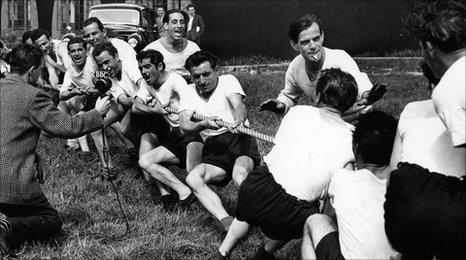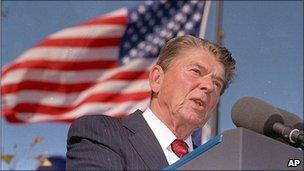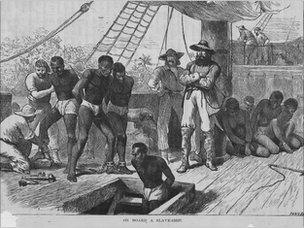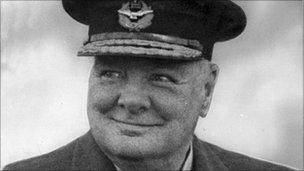Liberal? Are we talking about the same thing?
- Published

Both sides of the political spectrum lay claim to the word liberal, leaving us all in a muddle
Is there a more elastic word in the English language than the word liberal?
Is there a more abused, innocent, in-need-of-protection-from-bullies-word than the word liberal?
On either side of the Atlantic - for that matter, wherever English is spoken - liberal means whatever the speaker says it means, although that is often not what the hearer thinks it means. Confusion reigns.
In America, neo-conservatives call themselves neo-liberals when it comes to economic theory. They advocate liberal interventionism in foreign policy.
Liberals in Britain find the phrase liberal intervention to be an oxymoron and cringe at the very idea of intervening in another country's affairs, no matter how vicious the regime.
A couple of years ago, if you told an American that the Liberal Party was in power in Australia, the last thing he would have thought was that Liberal leader John Howard was a conservative slightly to the right of Ronald Reagan.
It must befuddle the bejesus out of fans of Rush Limbaugh - dean of America's influential right-wing talk radio - to think that Britain's Conservative Party, the party of Margaret Thatcher, is in a coalition with the Liberal Democrats.
Heads spinning
First of all, for Rush that would be a redundant name. For them Liberal = Democrat.
But beyond that, Liberal = Socialist, and it is not possible to contemplate a coalition between Thatcher's party and socialists.
And if you remind them that their other true British hero, Winston Churchill, started out a Conservative MP and then became a Liberal MP before returning to the Conservative fold, it absolutely makes their head spin.

Ronald Reagan was a true liberal. Discuss.
The reason for Churchill's change of allegiance was trade policy. He was a free trader, but his Conservative colleagues believed in protective tariffs, so he crossed over to the Liberal benches in the House of Commons.
That happened around a century ago, and if you go back another century you get to the origins of the liberal confusion.
According to most scholars, the word liberalism was first used in 1815 in English.
It comes from the Latin word liber, meaning free. That part is easy to understand.
Of course, what it means to be free is hard to pin down, and the methods for ensuring that governments allow their citizens to be free is equally muddy.
'Liberal' revolts
In its early days, liberal was a word used by that new phenomenon, the capitalist, businessman, or entrepreneur.
These businessmen wanted to be free to conduct trade across borders without paying tariffs - taxes that often went to supporting the feudal aristocrats who still ruled in much of the continent.
Democracy, rather than inherited privilege, was a liberal cause.

US divisions over slavery was the start of the confusion
Europe in the mid-19th Century was divided up into kingdoms and duchies. Uniting the people of a nation against this ancient order - nationalism - became a liberal cause.
Many people were second-class citizens based on ancient religious antagonisms. Equality for all citizens became a liberal cause.
How to achieve liberal goals? In 1848, revolutions swept across Europe.
Their goals were by and large liberal. People wanted clear national borders and they wanted to be able to trade freely across them.
These revolutions were bloody at first, and so for some, liberal became closely linked with radical.
The revolutions ended in failure, but within two decades most of the liberal principles that had been fought for had become common.
Modern Germany and Italy had been created.
Strong national movements in smaller countries were thriving.
But most of all, by the middle of the 19th Century, liberalism meant free trade.
Certainly, that is what it meant for Britain's Liberal Party which tore itself out of the Conservative (Tory) Party shortly after the events of 1848.
Not subtle
Over on the other side of the Atlantic, the word was not in use quite yet, but a massive wave of immigrants from Europe, fleeing the economic conditions that liberalism was not strong enough to fix, arrived in America.
They supported liberal ideas on personal freedom and infused them into America.
A new party, the Republican Party, was founded in 1854 and drew immediate support from these immigrants.
The Republicans were against the slavery that underpinned the economy of the American South.
Here is the source of modern confusion.
The South was against tariffs - a liberal position - but it was willing to fight to the death over the right to maintain slavery, as illiberal a position as it is possible to imagine.
Anyway, from that moment to the present, the word has been bathed in controversy.
Nationalism is considered illiberal now. Liberals in America question free trade because it costs American workers their jobs.
Maybe the word liberal can no longer stand on its own. Perhaps it is a weakness of the English language. Our language is wonderful for all manner of expression but on this it lacks subtlety.
Progressive conservative?
German might be more useful here. We could run several nouns together to form a single word that conveys our specific meaning: socialliberal or freetradeliberal might add clarity.
Even better might be socialliberalsolongasitadvancesthe-interestsofmyethnicgroup or freetradeliberalsolongasitmakesme-richandifnotthenI'mprotectionist.
I love the German language.

Would Winston Churchill still be smiling if you called him a liberal?
Anyway, the transatlantic confusion is not going away any time soon.
British Prime Minister David Cameron is, by the current American usage of the word, a liberal.
He accepts the basic science surrounding climate change theories and is an advocate of gay rights. He even calls himself a progressive.
The word liberal has been so debased in America by right-wing demagogues that liberals have for at least two decades preferred to call themselves progressives.
It really is confusing - although perhaps the real transatlantic confusion is not over the meaning of the word liberal but over the meaning of the word conservative.
Michael Goldfarb, external is a journalist and broadcaster who has lived in London since 1985. Formerly with National Public Radio, he is now the London correspondent of globalpost.com, external.